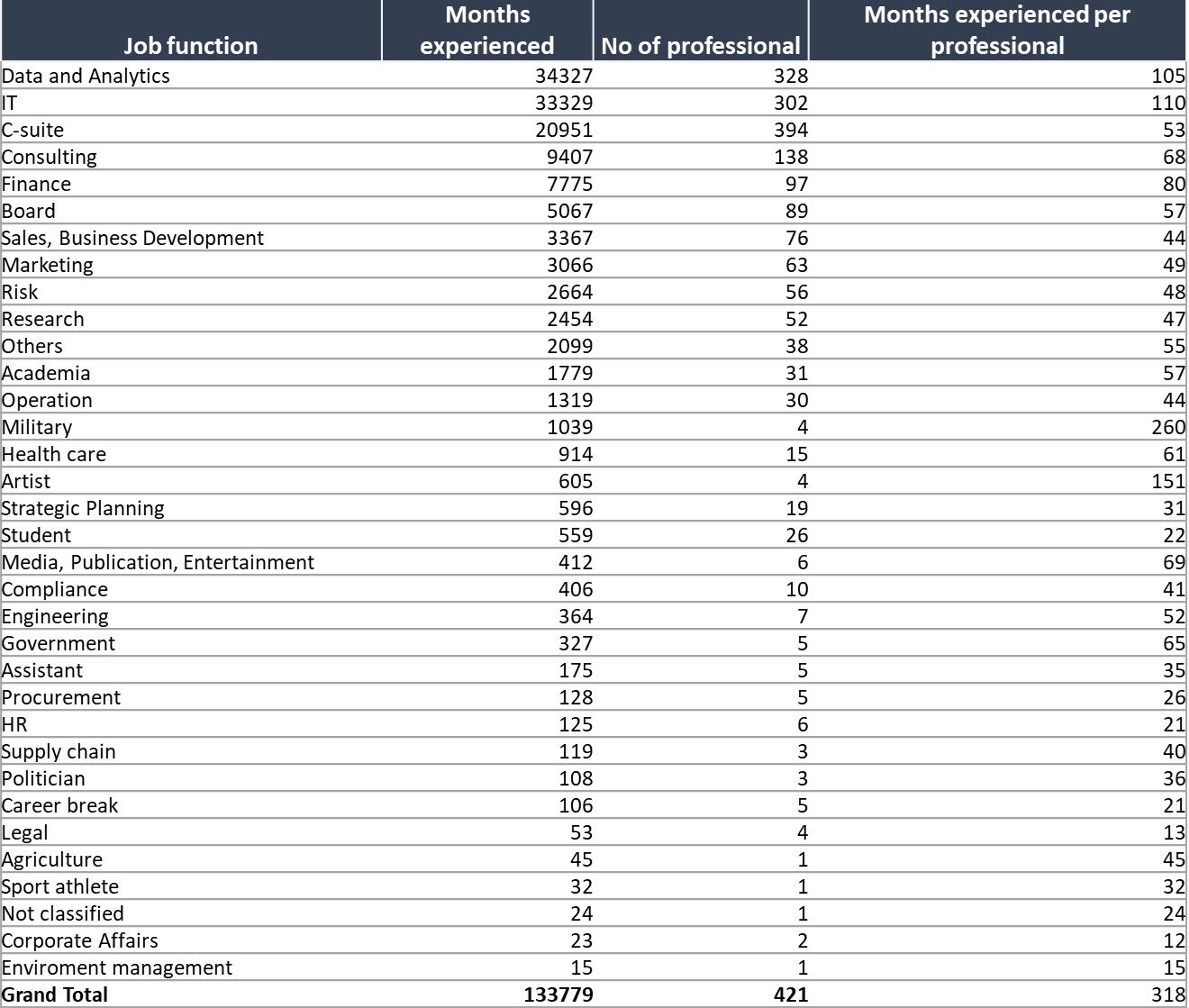Chief Data Officer trajectory – Data sampling from UK talent market

Why is your data science career stuck?
The role of a Data Scientist has long been viewed as a “dream job” – offering high compensation and the chance to tackle complex challenges while driving strategic decisions through data-driven models. However, as new fields like Generative AI gain traction, an alternative view is surfacing: being a Data Scientist may not be as fulfilling as initially perceived. Many Data Scientists report spending much of their time on repetitive data-cleaning tasks. Others find that their complex analyses sometimes leave senior executives disengaged or confused, rather than impressed.
If you find some truth in this perspective, it may be time to consider a strategic career shift toward a growing leadership role in data: the Chief Data Officer (CDO). The CDO position represents the pinnacle of a data-driven career, where professionals shape corporate strategy by aligning data initiatives with business goals through effective data governance. The CDO path extends beyond technical skills; it demands deep domain knowledge, strategic vision, and the ability to communicate insights clearly to business stakeholders. For Data Scientists aiming to elevate their impact, refocusing toward this role could offer a rewarding avenue for career growth and influence.
Research of Chief Data Officer career trajectories
I've shared a few articles here on my interest in the career path of the Chief Data Officer (CDO). Now, I’m thrilled to launch a new project: gathering real-world data on who today’s CDOs are and exploring their unique career backgrounds.
Key Questions
As this article focuses on a very basic descriptive analysis, I came up with only two questions.
- How many years does it take on average to become CDO?
- Which job function or profession do CDOs come mostly from?
Data Collection
As I discussed in other articles, I am very interested in use cases to leverage LinkedIn professional data to gain an insight into workforce question and career planning. I manually extracted data of professionals who have served as Chief Data Officer.
- 421 people in the United Kingdom who were found on LinkedIn
- Those people had the role ‘Chief Data Officer’ or its variant name e.g., ‘Chief Data and Analytics Officer’ and ‘Chief Data and Digital Officer’
- Through keyword search, I obtained a similar role name ‘Chief Data Protection Officer’. I did not count this as Chief Data Officer since this role typically focuses on data privacy compliance such as GDPR. I also excluded ‘Chief Data Science Officer’ as this could be a different role to focus solely on Data Analytics and internal advisory to business teams.
- Data were collected manually in LinkedIn search on August 2023
Approach
- Work history data in ‘Experiences’ section for 421 people were processed and the number of months prior to and after CDO role was aggregated by categories of job functions
- As title names in LinkedIn profiles are manually entered by individuals, I conducted semi-automated consolidations of similar job titles into the same categories of job functions.
Findings
- It took 234 months to become a Chief Data Officer on average
- They spent around 20 years on average until they became a Chief Data Officer. This indicates that Chief Data Officer is definitely an exclusive position and it is different from any other data roles e.g., Chief Data Scientist and Chief Data Architect.
- Top 5 prior experiences in job titles were Data and Analytics functions in either business or Information Technology, other C-Suite roles, Consulting, and Finance.
- It is inferred that more than half of professionals had worked for cross-functional sections which are either data-related functions or IT. At the same time, they also came from multiple functions like Finance, Sales & Business Development, Marketing, Risk, and so on. For me, it was interesting that ‘Sales, Business Development’ is ranked high. 76 professionals out of 421 Chief Data Officers had experienced to manage customers might be an indication of the blended skillset of business and data of the new role.
Table 1. Prior experiences in job functions of Chief Data Officer

Conclusion
While this research aims to provide a clearer picture of the emerging C-suite role of Chief Data Officer, the data scope and methodology could benefit from further refinement. These findings represent a snapshot in time and may evolve with changing conditions. That said, the results indicate that the CDO role demands a practical skill set, encompassing both cross-domain expertise in data and technology and strong business acumen. I plan to conduct additional analyses on this dataset and will share further insights with you soon.